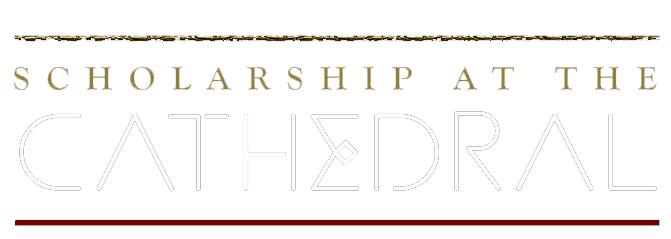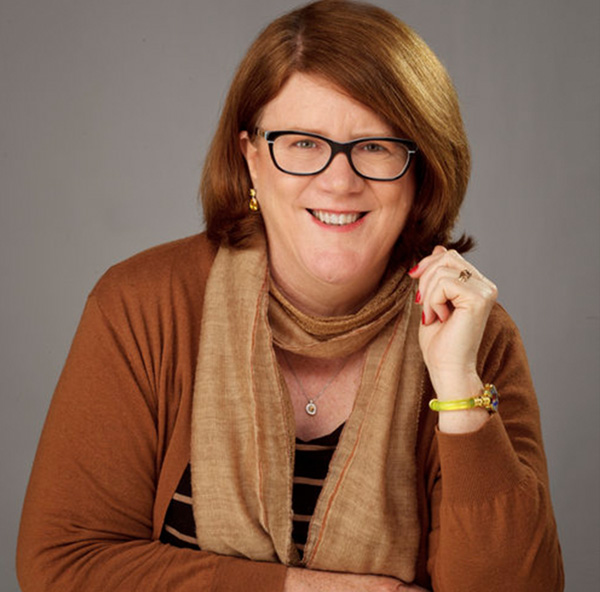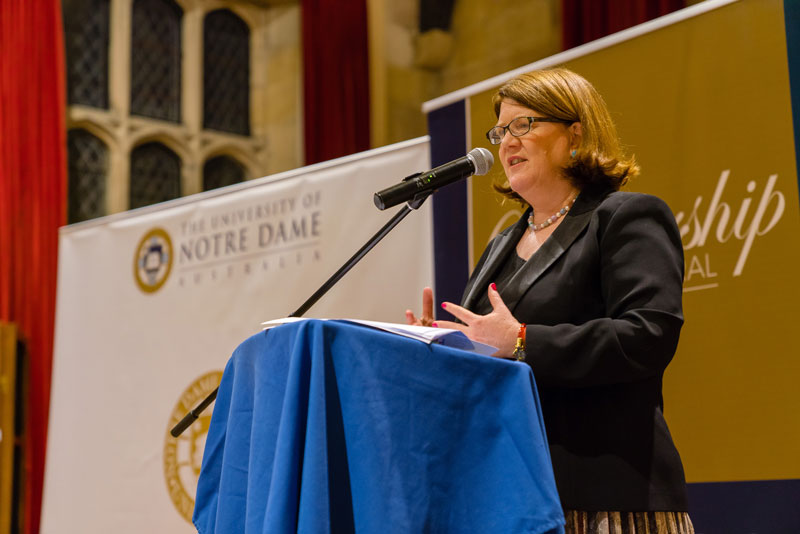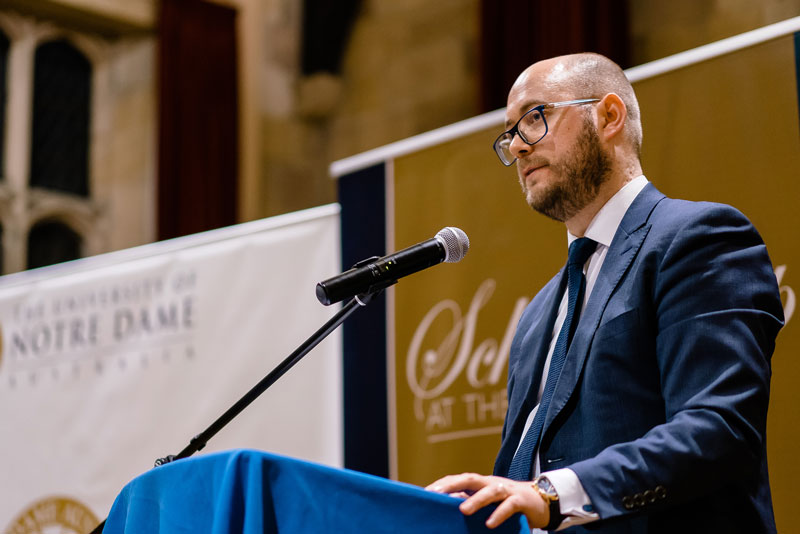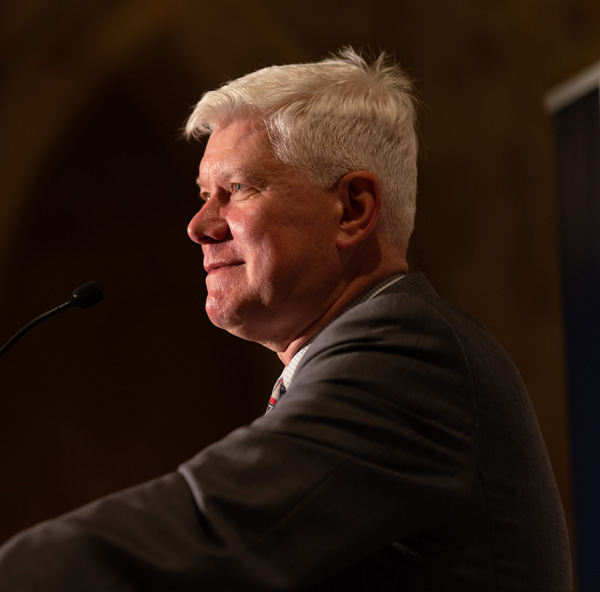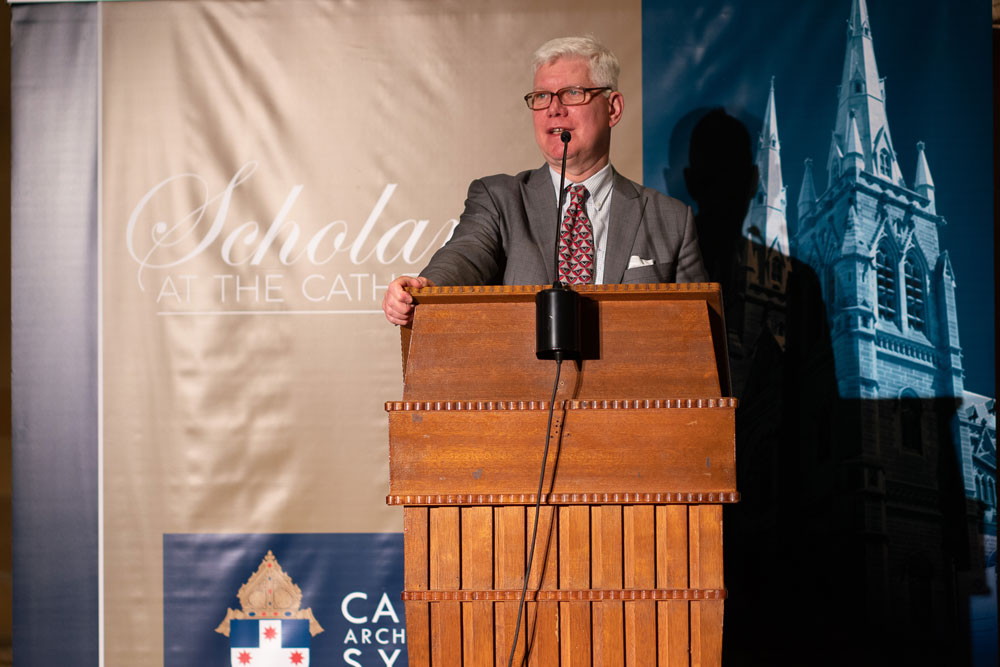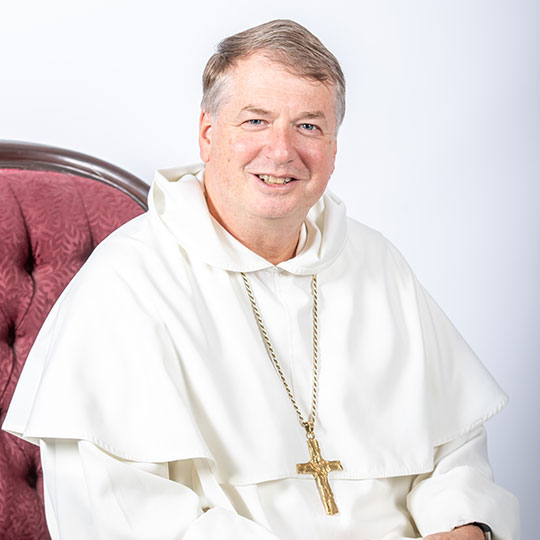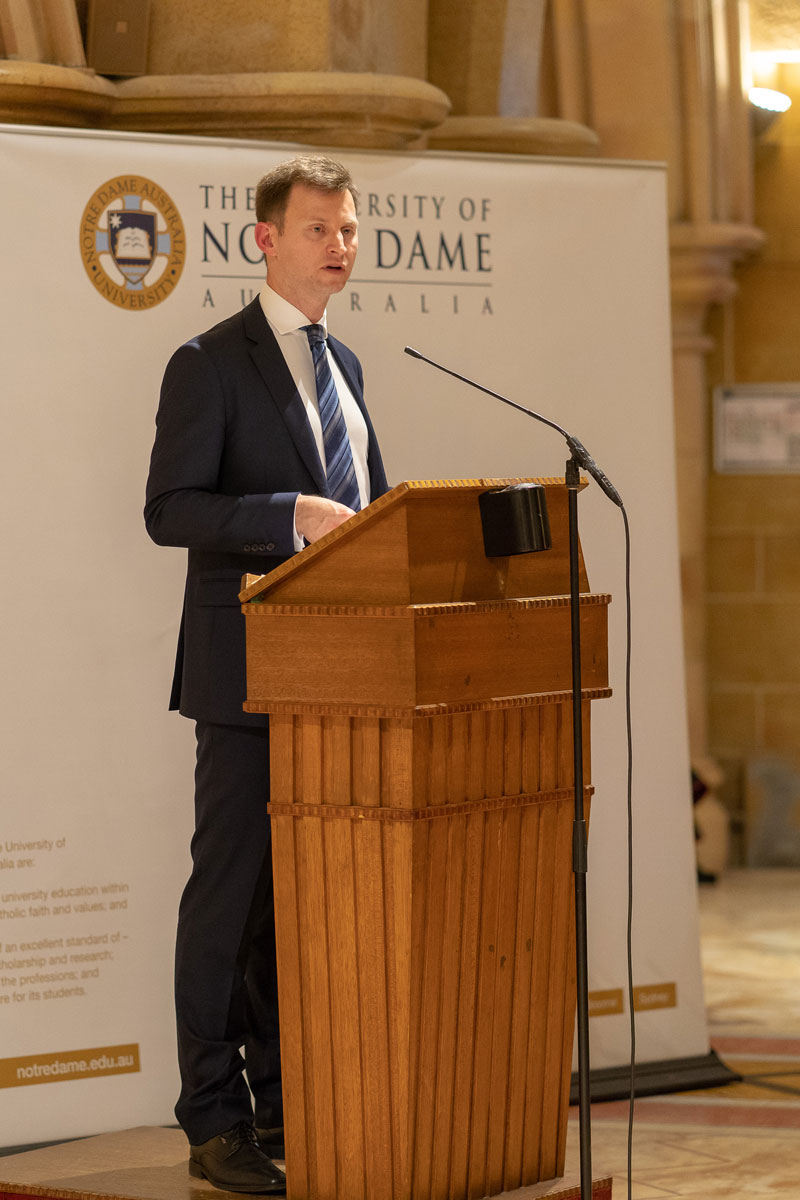FAITH, REASON AND LOVE
PROFESSOR TRACEY ROWLAND
Saint John Paul II Chair of Theology.
The relationship between faith and reason is one of those couplets in Catholic theology which keeps bobbing up just when you think that the debates have been put to bed. This lecture will take the form of an intellectual history tour beginning with the treatment of revelation in Dei Filius (Vatican I), moving through to the more historical presentation of revelation in Dei Verbum (Vatican II), with a detour through the French Thomist debates of the 1930s, then onto the theology of Benedict XVI which brings love into the faith-reason relationship, and finally, concludes with reference to the treatment of the theological virtue of faith in Lumen Fidei.
Professor Tracey Rowland
Professor Tracey Rowland holds two doctorates in theology, one from the Divinity School of Cambridge University (the civil PhD) and one from the John Paul II Institute at the Pontifical Lateran University (the pontifical STD) in addition to degrees in law and philosophy.
She began her studies at the University of Queensland where she completed her honours degree under the supervision of the Czech political theorist Vendulka Kubalkova. From 1988-1993 she lectured in Soviet and Central European Politics at Monash University while completing a Masters degree in contemporary Central European political theory.
From 1994-1996 she was a Research Fellow in the Faculty of Law at Griffith University with a focus on jurisprudence and Constitutional and Administrative Law. In 1996 she won a Commonwealth Scholarship to Cambridge University to work on her doctorate.
During the Australian Constitution Referendum year of 1999 she was an executive assistant to the Director of the No Case “pro-monarchy” campaign for the State of Victoria. From 2001-2017 she was the Dean of the John Paul II Institute in Melbourne. In 2010 she was awarded the Archbishop Michael J Miller Award by the University of St Thomas in Houston, Texas, for the promotion of faith and culture. In 2011 she was awarded the Officer’s Cross of the Order of Merit of the Republic of Poland and in 2014 she was appointed to the International Theological Commission. She is currently a member of the ITC’s sub-commission on religious freedom.
David Collits
David is completing a PhD at the University of Notre Dame, Australia under the supervision of Professors Tracey Rowland and Renee Kohler-Ryan, and Dr Paul Morrissey. His doctoral research concerns the interactions between the thought of Josef Pieper and Joseph Ratzinger, specifically regarding the supra-historical character of hope and the relationship of their views on hope and history to the nature-grace, faith-reason, history-ontology relationships. He has degrees in arts, law and theology. Prior to working as the private secretary and research officer to Most Rev. Anthony Fisher OP at the Diocese of Parramatta and Archdiocese of Sydney, he was employed as a solicitor at Clayton Utz and tipstaff to the Hon Justice Macfarlan of the New South Wales Court of Appeal. He is married with three young children.
